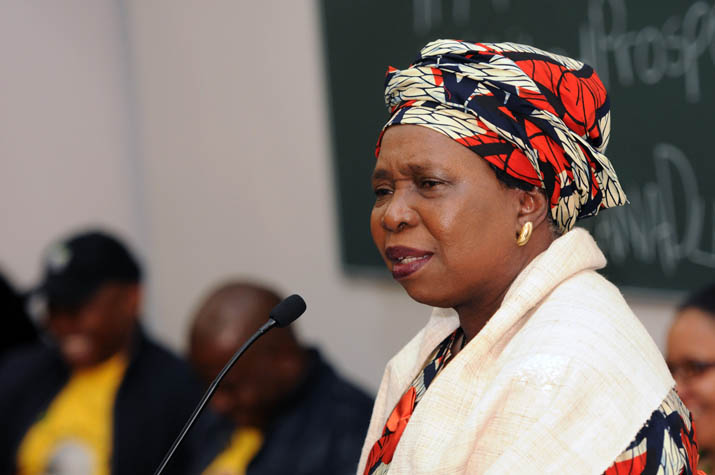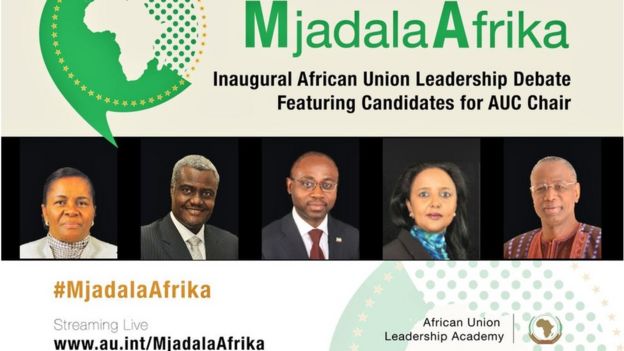
Candidates vying to be the next African Union (AU) leader are facing off in a public debate. The historic debate in Addis Ababa, Ethiopia allows the five candidates to outline their vision for Africa.
It is the first time such a debate has been organised by the AU but the actual decision will be made by African heads of state next January. Current AU chief Nkosazana Dlamini-Zuma is stepping down after declining to serve a second four-year term.
The debate gives the candidates the “opportunity to present their various perspectives in the area of leading the continental agenda for the upcoming four years,” the AU commission said on its website, which is streaming it live.
Organisers asked people to send their questions to the candidates using the #MjadalaAfrika hashtag.
Mjadala means debate in Swahili.

The candidates to be the next AU commission chairperson are:
- Pelonomi Venson-Moitoi – Botswana’s foreign minister
- Moussa Faki Mahamat – Chad’s foreign minister
- Agapito Mba Mokuy- Equatorial Guinea’s foreign minister
- Amina Mohamed- Kenya’s foreign minister
- Abdoulaye Bathily – Former UN special envoy to Central African Republic and Senegalese environment minister

‘Historic moment’: Emmanuel Igunza, BBC Africa, Addis Ababa
The challenges for the African Union are numerous – civil wars, terrorism, poverty, hunger, unemployment and migration are just some of the issues the aspirants will have to tackle.
They will have a town-hall style debate with a live audience drawn from the AU commission, diplomatic corps, media and some invited guests.
It is also being streamed live as the AU encourages people across the continent and beyond to participate.
It is indeed a historic moment for the continental body, which has hyped this as an opportunity for the candidates “to speak to African citizens”.
But how significant will the debate be in finally deciding who takes over the leadership of the African Union?
Not very. Voting is usually done behind closed doors and it will only be the 54 heads of state and government who will cast their ballots. So in essence, they will have the final say.
As in previous elections, the divide between Anglophone and Francophone countries has again emerged, with candidates from Eastern Africa and Western Africa being seen as the top contenders.
This one has all the signs of being a tightly contested election, as it was four years ago when Mrs Dlamini-Zuma won after several rounds.

Anglophone Francophone divide
The candidates and their supporters have been travelling across the continent to lobby for support from member states.
The Kenyan government, for instance, has launched an intensive campaign to canvas for votes for its Foreign Minister Amina Mohamed.
“Kenya is putting a lot of weight into it, it is calling in a lot of favours to get member countries to support her candidacy,” Andrew Weir of Africa Confidential magazine, told Germany’s Deutsche Welle.
But by tradition, the post rotates between Anglophone and Francophone countries. Mrs Dlamini-Zuma, from English-speaking South Africa, succeeded French-speaking Jean Ping in 2012.
Candidates from French-speaking Chad and Senegal would be in prime position if this principle is observed once more.
Critics have rejected the notion that choosing a successor should be based on a rotational system, saying that the best candidate should be chosen irrespective of their origin.

Leave a Reply